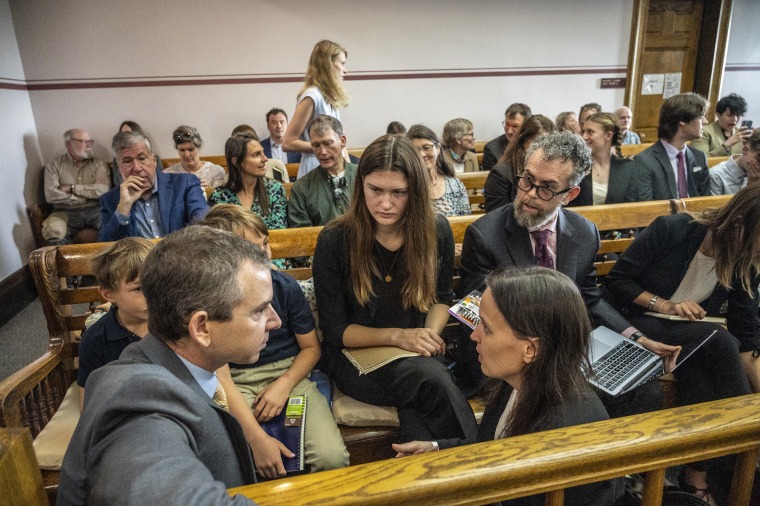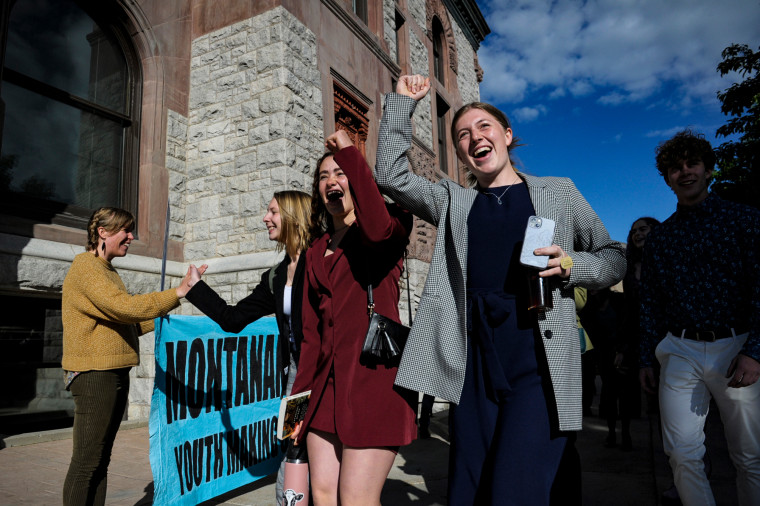HELENA, Mont. — A Montana judge on Monday sided with young environmental activists who said state agencies were violating their constitutional right to a clean and healthful environment by permitting fossil fuel development without considering its effect on the climate.
The ruling in the first-of-its- kind trial in the U.S. adds to a small number of legal decisions around the world that have established a government duty to protect citizens from climate change.
District Court Judge Kathy Seeley found the policy the state uses in evaluating requests for fossil fuel permits — which does not allow agencies to evaluate the effects of greenhouse gas emissions — is unconstitutional.
Judge Seeley wrote in the ruling that “Montana’s emissions and climate change have been proven to be a substantial factor in causing climate impacts to Montana’s environment and harm and injury” to the youth.
However, it’s up to the state Legislature to determine how to bring the policy into compliance. That leaves slim chances for immediate change in a fossil fuel-friendly state where Republicans dominate the statehouse.
Julia Olson, an attorney representing the youth, released a statement calling the ruling a “huge win for Montana, for youth, for democracy, and for our climate.”

“As fires rage in the West, fueled by fossil fuel pollution, today’s ruling in Montana is a game-changer that marks a turning point in this generation’s efforts to save the planet from the devastating effects of human-caused climate chaos,” said Olson, the executive director of Our Children’s Trust, an Oregon environmental group that has filed similar lawsuits in every state since 2011.
Emily Flower, spokeswoman for Montana Attorney General Austin Knudsen, decried the ruling as “absurd,” criticized the judge and said the office planned to appeal.
“This ruling is absurd, but not surprising from a judge who let the plaintiffs’ attorneys put on a weeklong taxpayer-funded publicity stunt that was supposed to be a trial,” Flower said. “Montanans can’t be blamed for changing the climate — even the plaintiffs’ expert witnesses agreed that our state has no impact on the global climate. Their same legal theory has been thrown out of federal court and courts in more than a dozen states. It should have been here as well, but they found an ideological judge who bent over backward to allow the case to move forward and earn herself a spot in their next documentary.”
Attorneys for the 16 plaintiffs, ranging in age from 5 to 22, presented evidence during the two-week trial in June that increasing carbon dioxide emissions are driving hotter temperatures, more drought and wildfires and decreased snowpack. Those changes are harming the young people’s physical and mental health, according to experts brought in by the plaintiffs.
The state argued that even if Montana completely stopped producing C02, it would have no effect on a global scale because states and countries around the world contribute to the amount of C02 in the atmosphere.
A remedy has to offer relief, the state said, or it’s not a remedy at all.
